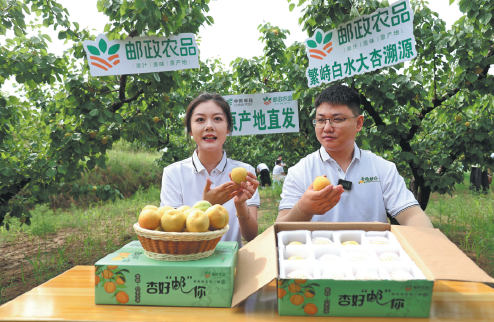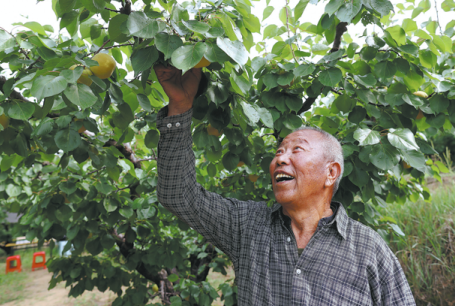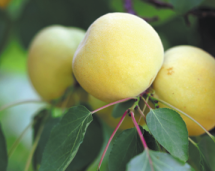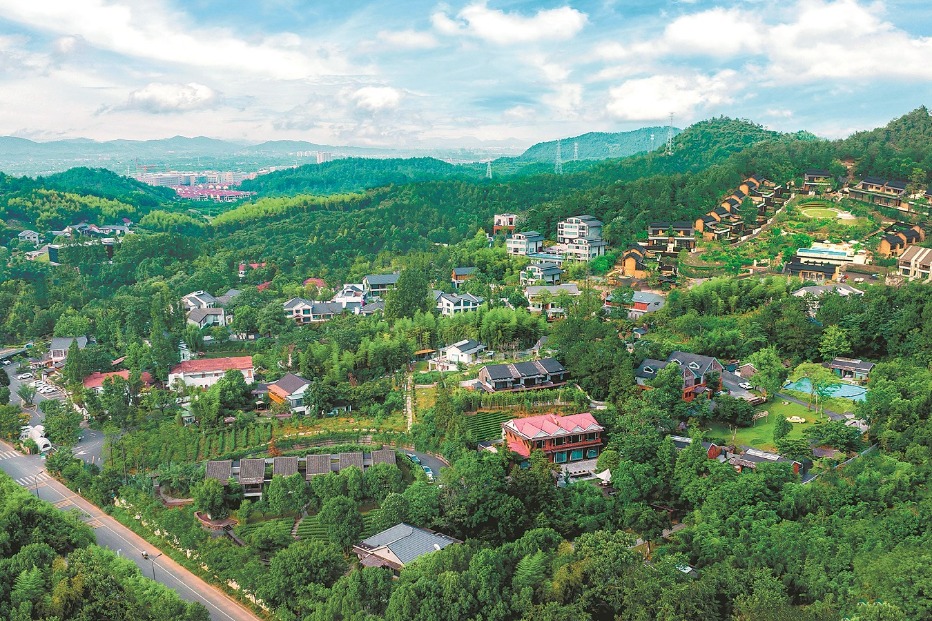Grassroots anchors push sales of Baishui apricots

Apricot orchards, scattered around Zhaojiazhuang village in Fanshi county in the northern province of Shanxi, had a bountiful harvest recently.
Grassroots anchors ventured into the orchards to help farmers sell the local Baishui apricot variety through livestreaming.
"Every year after the apricots ripen, selling them becomes a major challenge for us villagers," said Zhang Tianxin, head of the farmers' cooperative in the village.
"This year, the postal service organized a livestreaming session right in our orchards, picking the apricots directly from the trees, placing them in boxes, loading them onto vehicles, and shipping the freshest fruit to various parts of the country."
Villager Liu Jinshuo, 79, picked apricots in his own orchard and later, sorted, packed and shipped them through the postal service.
"Apricots are my wealth. Now, I receive quite a few orders every day. To ensure the freshness of the apricots, they must be picked on the same day," Liu said.
"I have 40 mu (about 2.67 hectares) of Baishui apricots. Each mu yields over 500 kilograms, and the sales are pretty good."
Zhaojiazhuang, located in the eastern part of the Loess Plateau, is a typical hilly village dominated by traditional agriculture.
As it is surrounded by mountains on three sides with significant temperature differences between day and night, long hours of sunlight, and excellent air and soil quality, the area provides a unique growth environment for Baishui apricots, which have been certified with the "geographical indication of agricultural products" by the Ministry of Agriculture and Rural Affairs.
In recent years, Zhaojiazhuang has vigorously developed the economic crop, cultivated the Baishui apricot industry, strengthened the village's collective economy, and gradually formed an industrial model that integrates planting, production, processing and sales.
They have developed deep-processed products such as dried apricots and apricot beverages.
By last year, the planting area of Baishui apricots in the village exceeded 347 hectares, with annual sales revenue reaching 400 million yuan ($55.82 million).
To address the challenges of sales and storage of apricots, the Xinzhou Post Office integrated resources from all channels and invited numerous livestream influencers to conduct origin-tracing live-broadcasting sales in the orchards, allowing consumers to visually experience the excellent quality and growth environment of Baishui apricots. Fanshi is under the jurisdiction of Xinzhou city.
At the same time, the Fanshi county government collaborated with the Xinzhou Post Office to launch a direct delivery model from the village.
Gao Jianjun, deputy general manager of the Xinzhou branch of China Post Group, said: "As a national team serving rural vitalization, we need to fulfill the responsibilities of central enterprises.
"In response to the needs of fruit farmers, the Fanshi Post Office hired experts to go deep into the orchards and teach farmers agricultural techniques, while delivering over 800 metric tons of fertilizer to them."
Gao also said that when fruit farmers are in urgent need of funds, the company also provides agricultural loans, resolving the financing issues of fruit farmers.
Livestream e-commerce is a rapidly developing retail model in recent years, with more and more "grassroots anchors" appearing in livestream rooms, introducing hometown specialties to consumers nationwide.
Shanxi anchor Li Wenbiao said, "I try hard to promote Baishui apricots through livestreaming, bringing Shanxi farm products to the whole country, ensuring that our fans can enjoy the freshest apricots."



Today's Top News
- Nation capable of sustaining trade growth
- Sovereign wealth funds ramping up allocation to Chinese assets
- Common ground prevails over differences: China Daily editorial
- China's foreign trade up 2.9% in H1
- Task force formed to probe lead exposure
- Albanese's visit shows close economic links






























